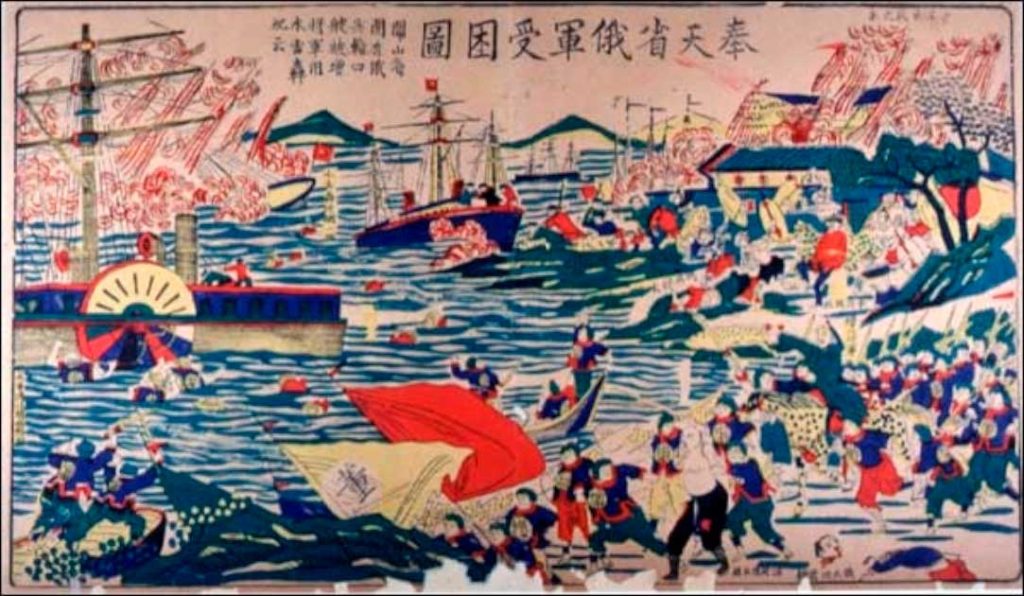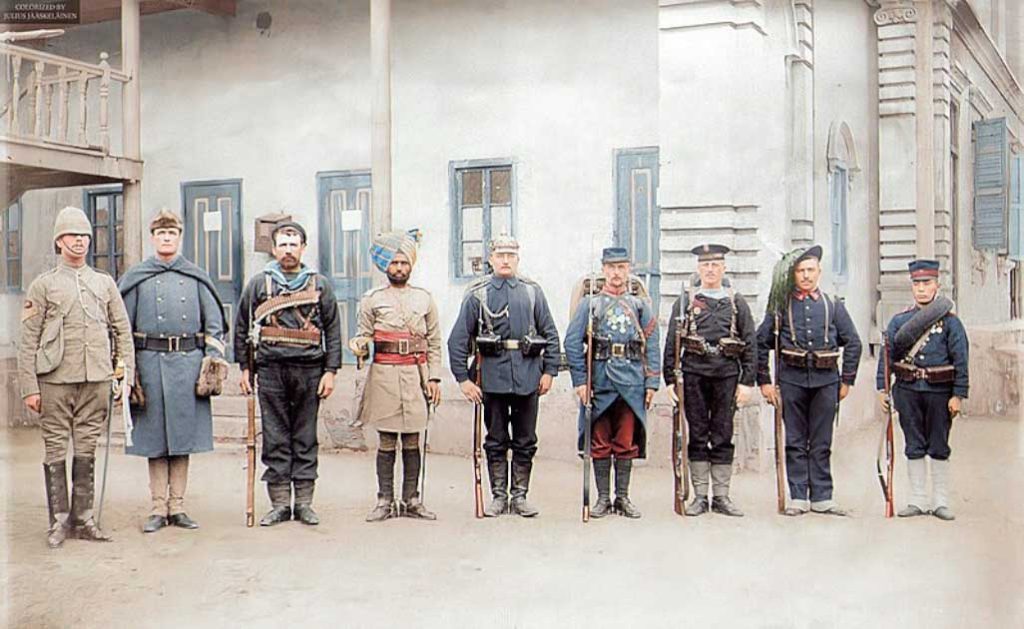19th century Imperial China was a very different country to today. Although notionally a sovereign state, in reality a loose coalition of foreign powers were systematically hell-bent on looting the country for its wealth of natural resources.
These “foreign devils” came from Europe, chiefly Britain who sought to leverage her great empire to concentrate wealth at home, through exploitation and dominance. Germany, Russia and Japan also sought a piece of the action, with the latter clashing with China over control of the Korean peninsula in 1895.
But this seemed to be the last straw for the Chinese. Angered by foreign interference and driven to desperation by poor harvests and extreme weather, the north rose in revolt in what was known as the Boxer Rebellion. Their goal: the eradication of all of the foreigners from the lands of China.
Was this the moment in history for China to throw off its foreign yoke and reclaim its destiny? Would the Boxers succeed?
Beginnings of the Boxer Rebellion
In 1895, China lost their war with Japan, a great humiliation for the country. The world had always considered China a greater country than Japan but now, with this defeat, Japan took control of Formosa (Taiwan) and Korea. Chinese society and the elite both concluded that this defeat was the fault of the Europeans, who were busy extracting as much wealth as they could from the country.
Were the Europeans at fault? Partially, in that their interests did not align with those of China as a sovereign state, but Chinese mismanagement and a weakened Imperial rule also contributed. Nevertheless, the foreigners were no longer considered welcome as a sense of nationalism awoke in the Chinese peasantry.
Things came to a head in the year 1898 in the rural regions of northern China. Pushed to the brink by the defeat by the Japanese, by the European meddling and looting, and facing the risk of starvation, the north rose up in rebellion against Europeans, Christians, and empire builders.

The term ‘Boxer’ within the Boxer Rebellion phrase was a reference to a Chinese secret society. The original name of this society was Yihequan, meaning harmonious and righteous fists! The Europeans, seeing a large number of martial artists in the ranks of the rebellion, referred to them as “boxers”.
- The Albigensian Crusade: Why did the Catholics start a Civil War?
- The Tragic Love Of Yang Guifei and The Emperor Of China
However, this involvement of the Yihequan was more than just a coincidence. The fighters believed that their training had made them invulnerable to foreign weaponry, and this in turn gave them courage in the face of the enemy they might not otherwise have had.
The Yihequan had believed themselves invulnerable for centuries, but now the new European technology and weaponry gave the concept new meaning. To resist the blows of traditional Chinese weaponry was one thing, but to stand up to guns and explosives made the Yihequan seem more than mortal.
The Shantung Province, where the rebellion originated, was under heavy German influence. Germany dominated all of the factories, coal mines and rail lines within Shantung. The Germans took all the profits, but the Chinese lived a poor lifestyle and received low wages.
The Old Buddha
By the year 1900, this rebellion was gaining momentum across the countryside, spreading across all of Northern China, including the capital Beijing. Here, they met a formidable force, and the power behind the Manchu dynasty Imperial throne: the Dowager Empress.
Known locally as the “Old Buddha”, but always behind her back, as a woman she could never wield power herself in Imperial Chinese society. However there was no doubt in her position of authority within the Imperial court. Facing the uprising, she cannily realized that she was not the focus of their ire.
The Empress saw a way to turn the threat of the Boxers into an opportunity. Contacting the leaders of the rebellion, she offered her support in their quest to eradicate the Europeans. The Boxers in turn saw her as a powerful ally and, as an added bonus, their support for her further protected her against any Imperial intrigue at court.
There was no shortage of targets for the Boxers, as 1900 Beijing and the surrounding countryside was thick with Europeans living a luxurious lifestyle in stark contrast to that of the local Chinese people. The Europeans treated the Chinese in Beijing as their poor slaves, and so when the Boxers came to take the region they had no shortage of grass roots support either.
The European Response
By June 1900, Europeans were threatened with their lives as the Boxers were on a seemingly unstoppable killing spree. They soon realized that they were in grave danger, and most fled the city.
- The Chinese Famines of 1907 and 1959: Natural Disasters or Man-Made?
- Terracotta Army: Earthen Soldiers of China’s First Emperor
Alarmed at the deaths and seeing a destabilizing of European power, the German ambassador visited the Royal Palace to protest against the way Europeans were being treated on Chinese land. But, the ambassador had gravely misread the situation, and was dragged from the chair and murdered by the Chinese.

And this murder created fear in Europeans’ minds and proved that even the powerful European elite were not safe in this rebellion. The remaining Europeans on Chinese ground headed to British Legation to shelter from the Chinese rebellion. Here they were defended by some 400 sailors and soldiers, dubbed the “Carving Knife Brigade” because there were not sufficient weapons to arm them all.
This siege and defense by the legation continued for 55 days until the international force joined the European army, which had marched from Tientsin on the coast. Around 66 Europeans were killed, while 150 were injured by that time.
The peasant rebellion was no match for the international military force that descended on them, and from the destruction the armies of the west caused on their path to Beijing it was clear they were out for revenge.
Beijing was heavily damaged and all who were believed to be Boxers were publicly beheaded as the Europeans brutally restored their primacy. The Chinese government also received an order to pay $450 million as compensation for the loss, a huge amount for the country at the time.
Even after their support to the rebellion, the Manchu dynasty and Empress Dowager were forgiven. She was allowed with her family to flee to Beijing and live in the Forbidden Palace without any punishment. The only thing she lost was the authority over her dynasty, and she had to be compliant with the European nations, who decided to impose their authority over the Chinese.
So, a failed rebellion? The Boxers were crushed and European power was restored, and yet something had changed. The Europeans had been given a taste of Chinese national pride and, although they returned, they were wary of direct involvement lest the same thing happen to them again.
The Europeans learned that it was better to control the Imperial family than directly control the country. Dynastic China, ruined by famine, would however last for less than a decade more. Even though the Europeans were not driven out, the Boxers had given the people an understanding of what it could mean to be Chinese.
Top Image: The Bozer Rebellion drew an international response, but showed the Europeans the dangers of their imperial foreign policy. Source: Unknown Author / Public Domain.
By Bipin Dimri